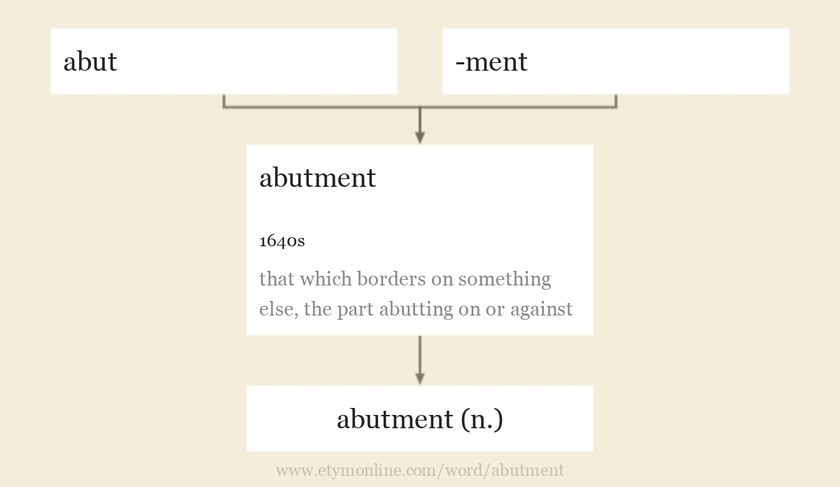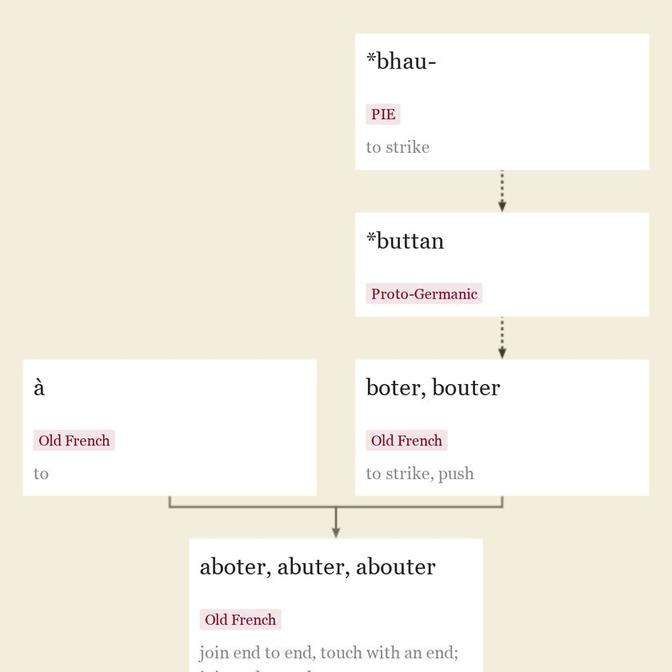abutment (n.)
1640年代,“与其他事物接壤的部分,与之相邻的部分”,源自 abut(动词)+ -ment。最初是任何连接点; 建筑用法,“桥梁的一拱与另一拱相遇的坚实结构”可追溯至1793年(概念是拱的交汇处)。
最早记录年份: 1640s

abutment 的相关词汇
abut (v.)

公元13世纪中叶,"结束于,接壤于,以末端接触",源自古法语 aboter, abuter "末端相接,以末端接触"(13世纪),以及 abouter "末端相接",源自 à "到"(参见 ad-)+ boter, bouter "打击,推动",源自日耳曼语源(最终源自 PIE 词根 *bhau- "打击")。比较 butt(动词)。相关词汇: Abutted; abutting。
-ment
这是一个拉丁语常见后缀,最初来自法语,代表拉丁语 -mentum,它被添加到动词词干中,以制造表示动词行为结果或产品,或动词行为的手段或工具的名词。在俗语拉丁语和古法语中,它被用作动作名词的形成成分。法语在动词根和后缀之间插入一个 -e-(例如从 commenc-er 形成的 commenc-e-ment; 对于以 ir 结尾的动词,插入 -i-(例如从 sentir 形成的 sent-i-ment)。
从16世纪开始,与英语动词词干一起使用(例如 amazement, betterment, merriment,最后一个还说明了在这个后缀之前将 -y 变成 -i- 的习惯)。
The stems to which -ment is normally appended are those of verbs; freaks like oddment & funniment should not be made a precedent of; they are themselves due to misconception of merriment, which is not from the adjective, but from an obsolete verb merry to rejoice. [Fowler]
通常附加 -ment 的词干是动词的词干; 像 oddment 和 funniment 这样的怪异词不应成为先例; 它们本身是由于对 merriment 的误解而产生的,后者不是来自形容词,而是来自一个过时的动词 merry,意为“欢乐”。[福勒]